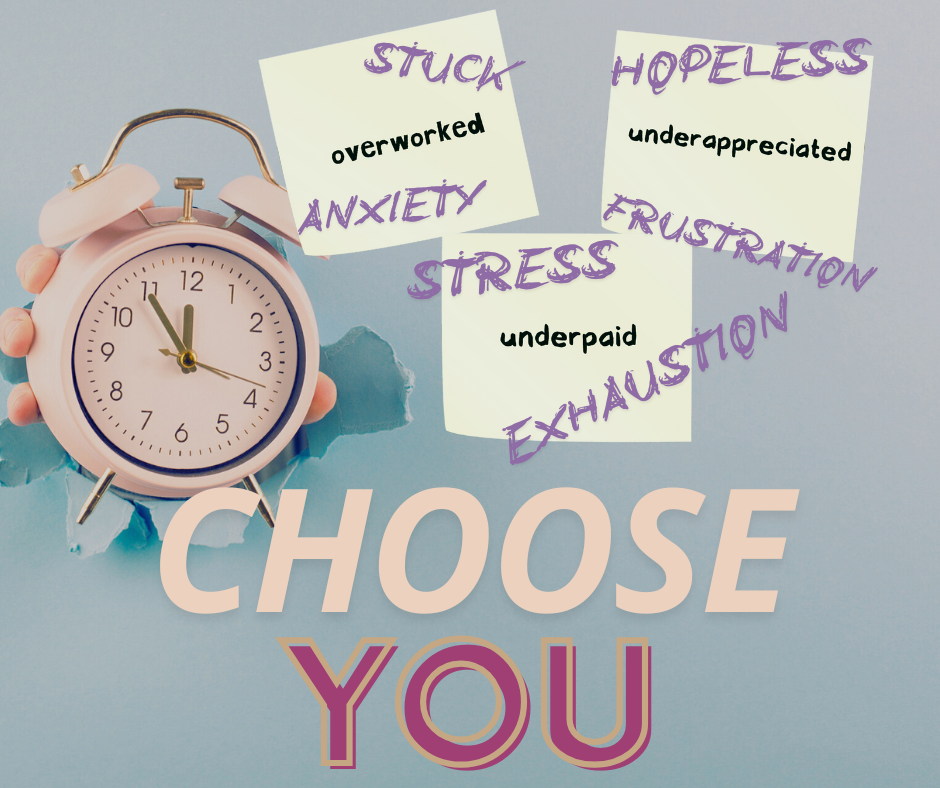
You’re drowning in emails before you’ve had your coffee. Taking a conference calls during your commute to work. You’re staying late to finish work that wasn’t yours to begin with. Weekends? They’re spent “catching up” so Monday doesn’t feel like a tidal wave. And you tell yourself it’s just the way things are, that your $170,000 salary plus $50,000 bonus makes it all worth it. But does it?
Here’s the truth: you’re giving away your life for free. Those extra hours you’re putting in? They’re worth far more than you realize. Worse, this cycle isn’t just about money—it’s about what it’s costing you emotionally, mentally, and physically.
The Math Minus the Emotions:
On paper, a $220,000 total compensation package sounds impressive. But who works just 40-hours a week on a salary… quietly 40 turns into 60 hours—a “new normal”—it’s easy to justify. After all, it’s just 3 extra hours a day spread across 7 days. Not too bad, right? Isn’t that just part of being on salary?
Yes… and no. The problem is that this “new normal” comes with a catch (financially, physically and mentally). The numbers start to tell a very different story.
- Standard Work Year (40 hours/week): 2,080 hours
- Hourly Rate for Standard Hours: $220,000 ÷ 2,080 = $105.77/hour
- Actual Hours Worked (60 hours/week): 3,120 hours
- Your Actual Hourly Rate: $220,000 ÷ 3,120 = $70.51/hour
Those extra 20 hours a week add up to 1,040 unpaid hours annually. At your current salary, that’s $110,000 worth of free labor. The company is the benefactor here—they’re getting extra work without paying for it.
But let’s be clear: it’s not entirely the company’s fault. Yes, they benefit from your time, but you allow it to happen. Why?
Why You Stay
You’re not lazy or unmotivated. If anything, it’s the opposite. You’re hardworking and loyal, and maybe you tell yourself this is just how success works. But dig deeper, and you’ll find fear is holding you back:
- Fear of Change: What if the next job is worse? What if I can’t find anything better?
- Fear of Disappointment: What if I fail? What if I’m seen as ungrateful or incapable?
- Fear of Stopping: If I take a moment to breathe, everything will fall apart.
This fear traps you in a cycle. You’re too overwhelmed to look for another job. You’ve convinced yourself there’s no time to even consider alternatives.
You Deserve Better
Let me tell you something you might need to hear... you are worth more. Your skills, your time, and your energy are valuable. You are not stuck. The first step to breaking free is recognizing your worth. The second step? Taking action.
Imagine Working Less and Earning More... yes, your read that right.
Let’s say you leave your high-stress, high-demanding job for one paying $190,000 where you can actually put in 40-hour weeks (without the fear of consequences):
- Hourly Rate for 40 Hours/Week: $190,000 ÷ 2,080 = $91.35/hour
Even with a lower salary, your hourly rate increases by over $20/hour. More importantly, you get back 1,040 hours—130 full eight-hour workdays every year—to spend on your health, relationships, and dreams.
How to Reclaim Your Time and Value
-
Own Your Role in the Cycle
It’s not just the company’s fault. Acknowledge how you’ve contributed by staying quiet, saying yes, and ignoring your own boundaries. Change starts with taking responsibility. -
Evaluate the Math
Look at your hours and calculate your real hourly rate. Ask yourself: are these extra hours worth the toll they’re taking? -
Talk to Management
Prepare a clear case: - “I’m working 60 hours a week, which reduces my effective hourly rate to $70.51. Those 1,040 extra hours are worth $110,000 annually.”
- Request either compensation for your time or a realignment of responsibilities to bring your workload back to 40 hours.
-
Be Ready to Move On
If management isn’t willing to make changes, start exploring other opportunities. Yes, finding a new job takes time, but the time you’re losing now is far greater. - Take Small Steps
- Set aside 15 minutes a day to research job openings or update your resume.
- Use your network. Reach out to people who can connect you to roles that fit your skills and values.
Most importantly commit to prioritizing your well-being as much as your career. Set boundaries with your time—it’s hard, I know, especially when the grind has become your new normal. But try starting small: pick one or two days where you don’t work after the kids are in bed or resist the urge to dive into emails first thing in the morning while still in your PJ’s. It’s about creating a better normal—one that prioritizes your well-being and helps you thrive, not just survive.
Here’s the thing: even if you switch roles or companies, the same habits will follow you if they’re not addressed now. And if you find it impossible to sit still or step away from work, it could be a sign of something deeper at play. Many people become hooked on the dopamine rush from checking emails or ticking things off a to-do list. Recognizing that is the first step to creating a healthier relationship with work—and with yourself.
Remember, You’re Not "Stuck"
Fear might try to convince you to stay put—it’ll whisper that you can’t do better, that change is too hard, or that the timing isn’t right. But here’s the truth: you are capable of so much more. You have the power to step into a role that truly values your time and gives you the freedom to live life on your terms. You deserve a career that aligns with your worth, your vision, and your goals. The first step is believing that it’s possible—because it is. Take a breath. Recognize your value.
Your time is priceless. Stop giving it away for free and start building the life you deserve.

